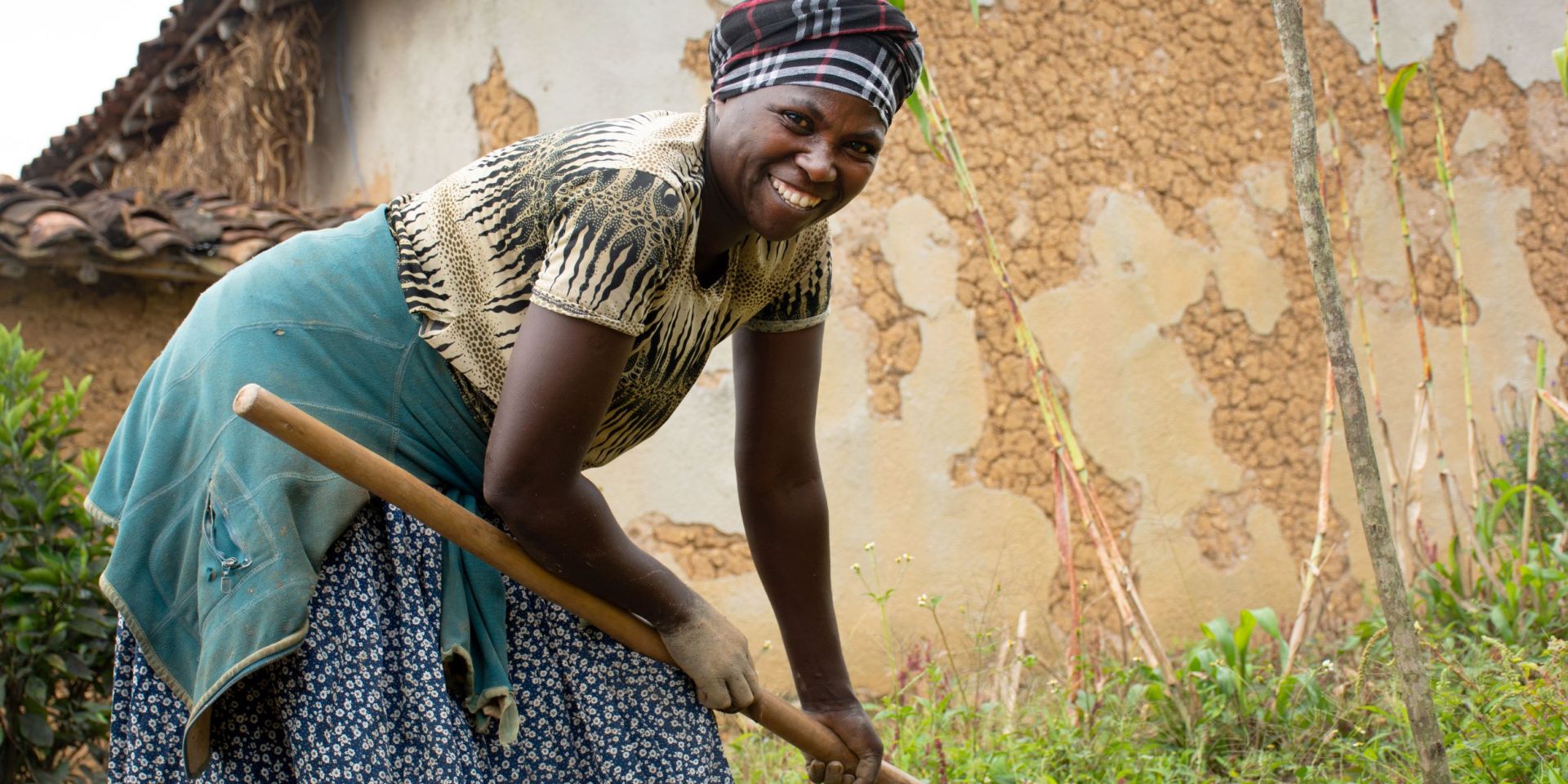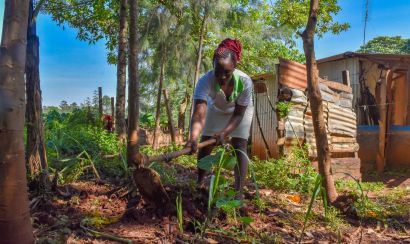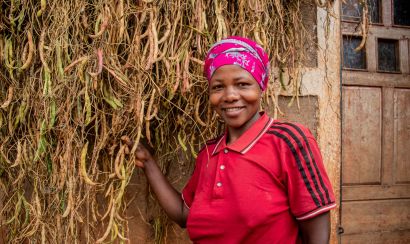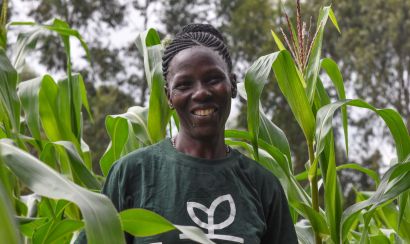The power of women smallholder farmers
On the hillsides of Muhanga District in Rwanda, Jeanne D’Arc Mbanira tends to her crops to provide for her family. For her, farming is more than a means of survival – it is a means to financial independence and a secure future for her children.
“There is a saying in Kinyarwanda that says ‘Ukurusha umugore, akurusha urugo’ to mean women are the bedrock of families,” Jeanne says.
The World Bank notes that when women's harvests increase, household income rises by 20-30%, leading to better nutrition, healthcare, and education for their children. In turn, this translates to healthier, better-educated future generations, capable of breaking the cycle of poverty. Despite this, women in Africa often struggle to access the financing and the resources they need to invest in their farms to produce more, manage disruptions like climate-related challenges, or even cover basic family expenses like schooling, healthcare, and nutrition (FAO).
The World Food Programme estimates that if women farmers had the same resources and opportunities as men, agricultural production could increase between 2.5 and 4%, lifting as many as 150 million people from hunger and poverty.
The 2024 theme for International Women's Day, "Invest in Women; Accelerate Progress," underscores the importance of supporting women farmers like Jeanne. Providing them with the necessary resources, such as access to credit, improved seeds, and training, can significantly increase agricultural productivity and contribute to food security and household prosperity.
Women are central to agriculture and an important part of our work. Through partnerships and targeted interventions, we can further support women's impact in agriculture, improving food security levels and fostering economic development at the community level. At One Acre Fund, 60% of the farmers we support with asset financing are women, and Jeanne exemplifies how these programs can significantly support women farmers’ prosperity. Our asset financing offers farmers access to seeds, fertilizers, and training on credit, helping them increase their agriculture productivity.
Impact of investment
“Before joining One Acre Fund, I harvested poorly,” Jeanne says. “Often, I managed 20 kilos of beans and 50 kilos of maize. After three months, I would run out of food for my family.”
In our experience working with millions of farmers, food security sits at the bottom of the transformation pyramid, and all other aspects of life, including financial stability and personal well-being, depend on being well-fed. Since she started working with One Acre Fund, Jeanne’s fortunes have changed for the better. Access to planting inputs, like quality seed and fertilizer, on credit, and to agricultural training, have changed how she farms.
"I used to struggle with inputs because I couldn’t afford one-time payments. This is not a problem I have anymore,” Jeanne says.
“I now receive farm supplies at the beginning of each season from One Acre Fund on credit, enabling me to make manageable monthly repayments. I have also been trained on how to correctly space my crops and the accurate fertilizer application. Last year, I harvested 250 kgs of maize and 150 kg of beans. My family has enough to eat, and I have started thinking of selling my surplus harvest and investing the income I get."
With increased harvests and surplus to sell, farmers can venture into entrepreneurial projects such as selling produce in local markets and reinvesting their income to grow more food on larger acres of land.
“In the upcoming planting season, I want to expand my farm and employ additional workers to assist me,” she says. “I want to farm and earn more!”
Jeanne's efforts have improved her livelihood and made her a role model to her daughters and other women. Her story is inspiring others in her village to embrace modern agricultural practices and improve their livelihoods, galvanizing her community around her vision for a secure future.
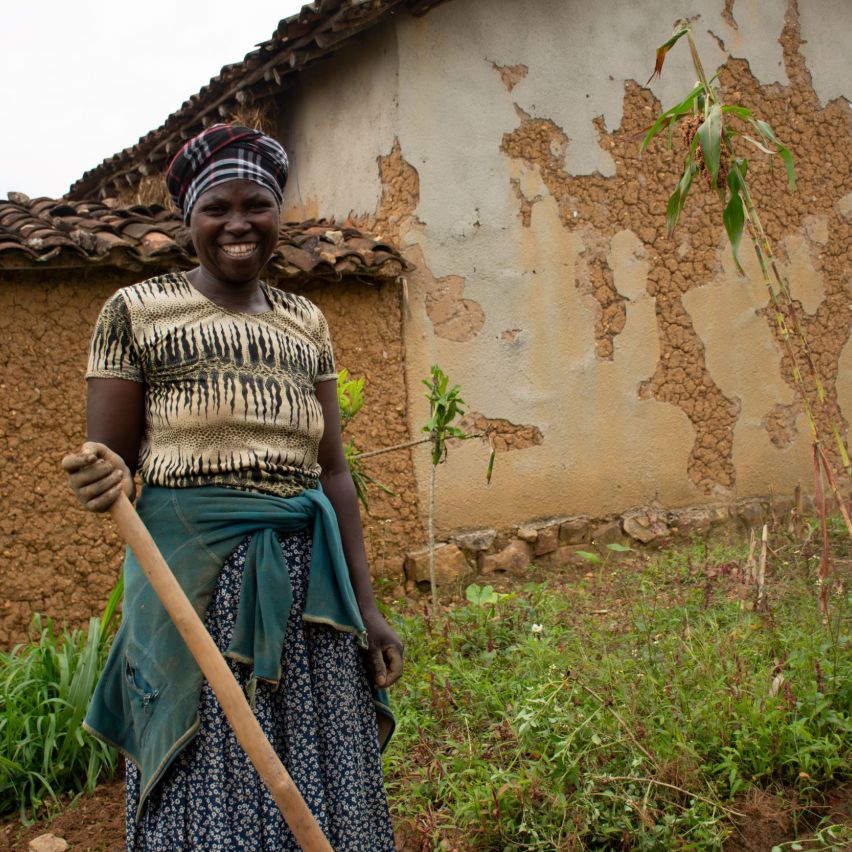
“I have taught my daughters that it is their right to have access to everything that men do. I hold out for the hope that the world will actualize gender equity and equality in my time. I want my daughters to have equal access to resources and opportunities, and I want to be there to encourage them to grab those chances,”
